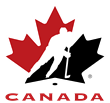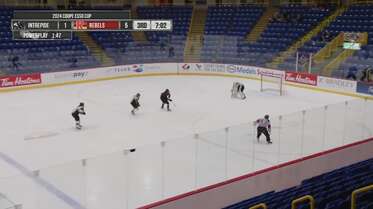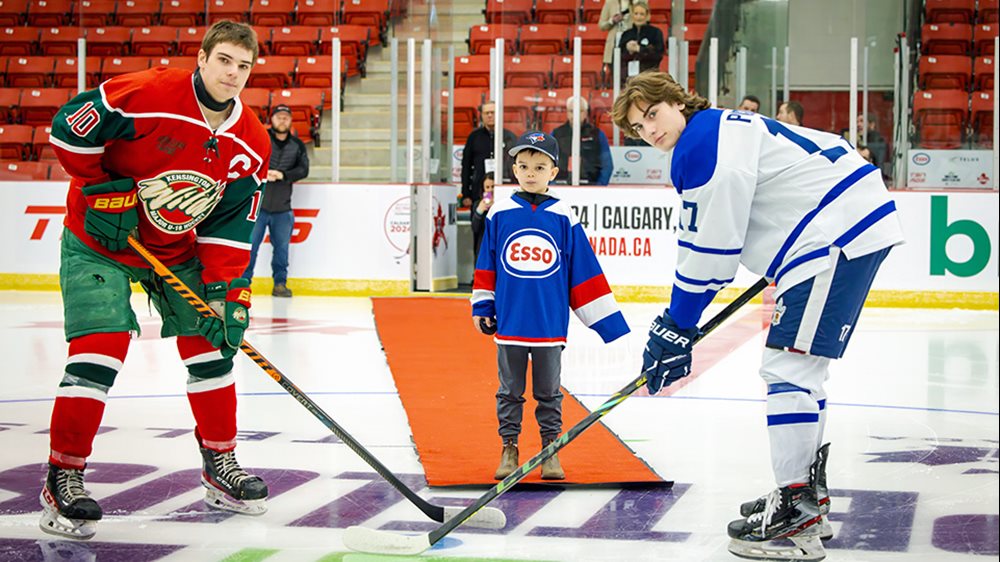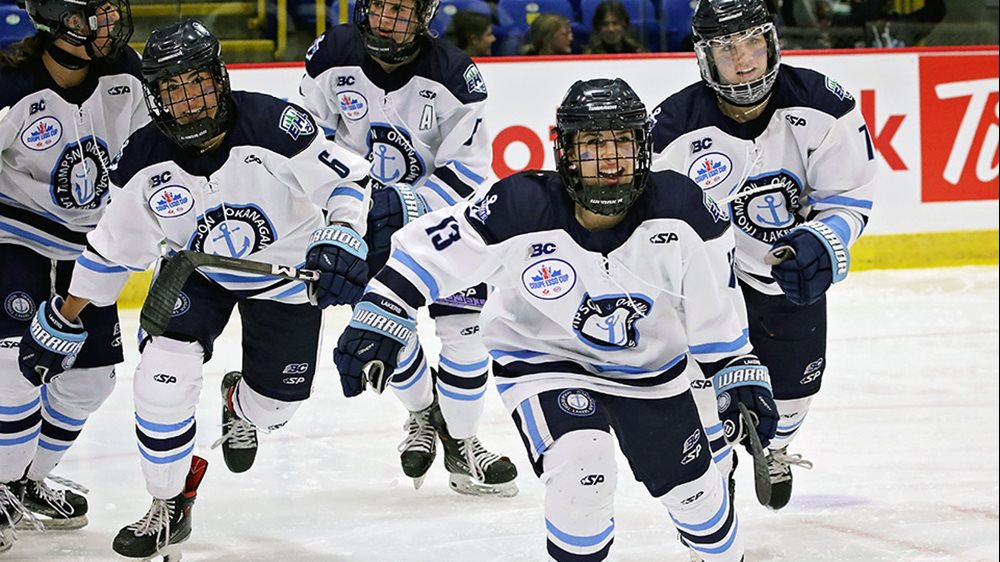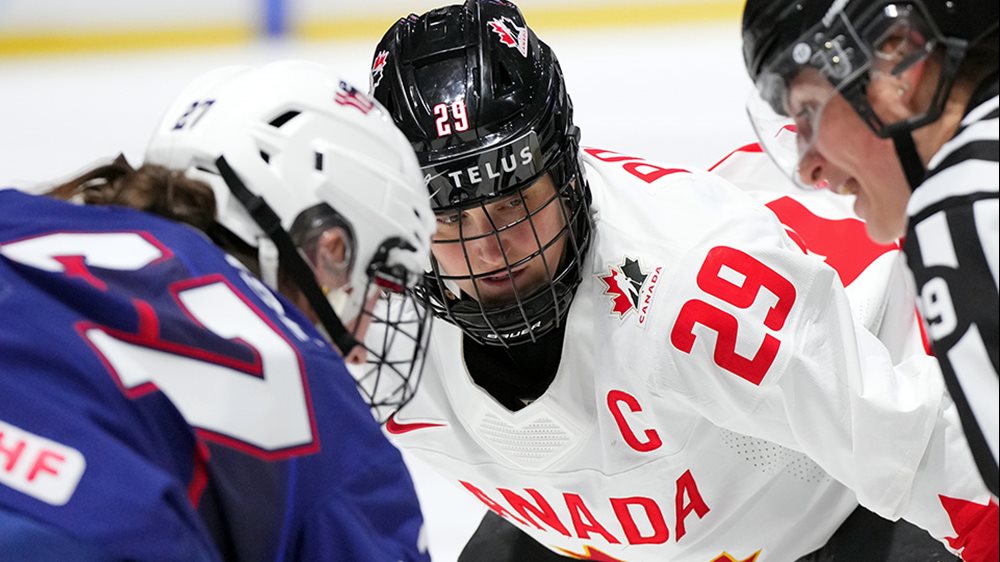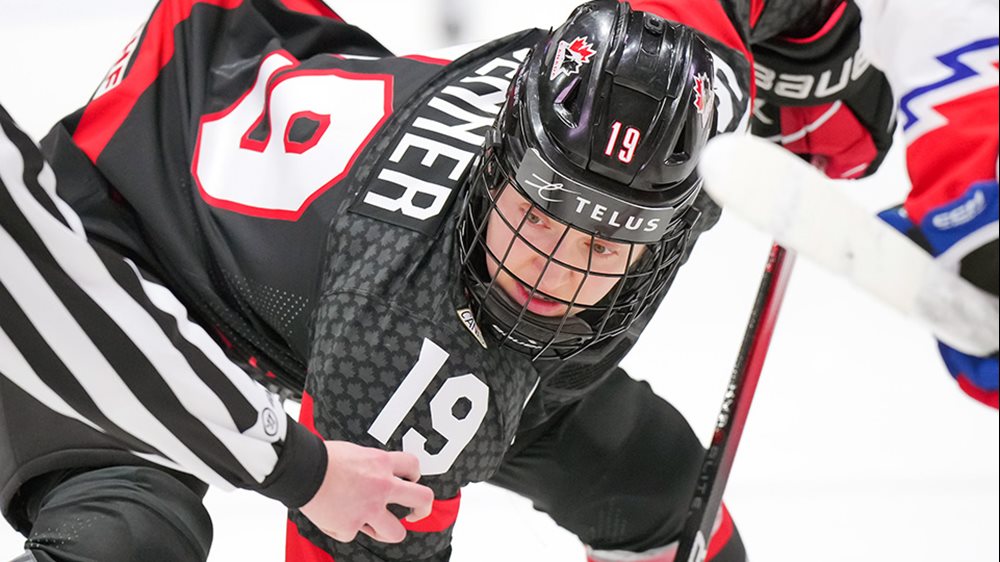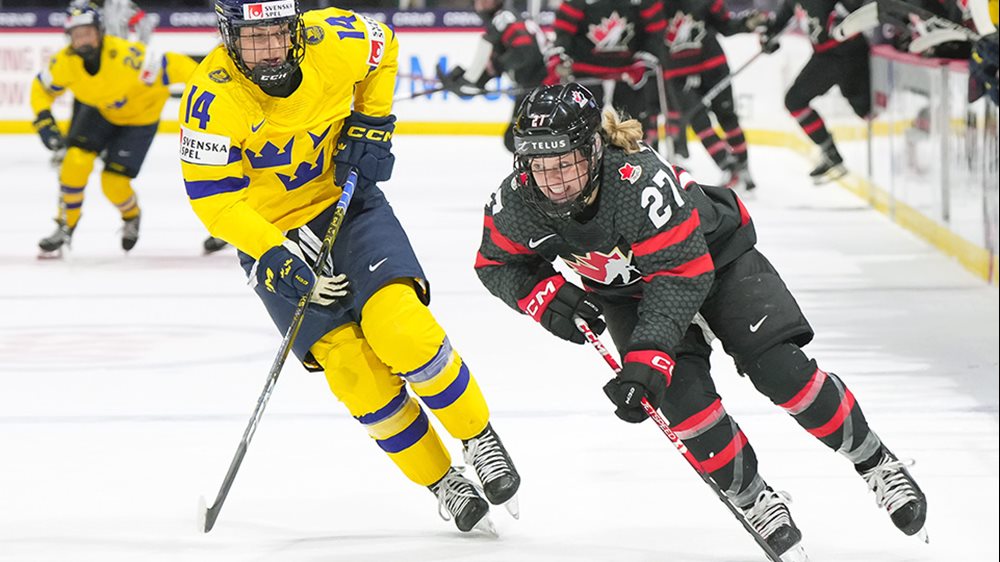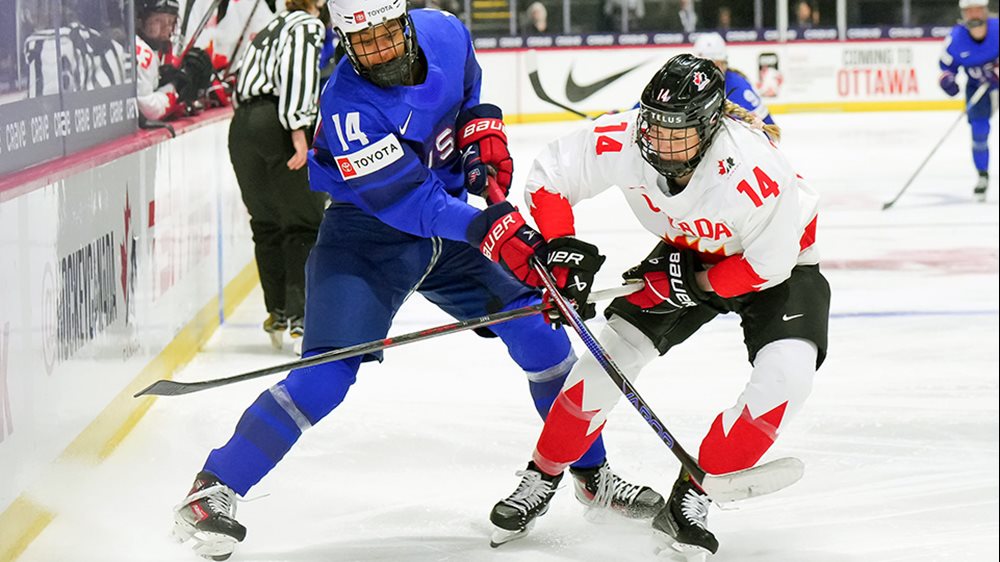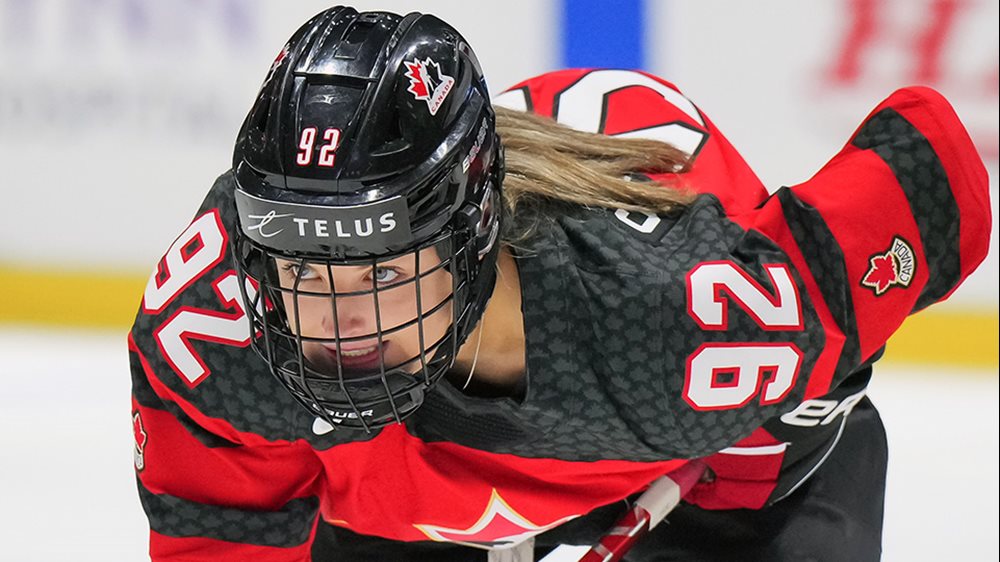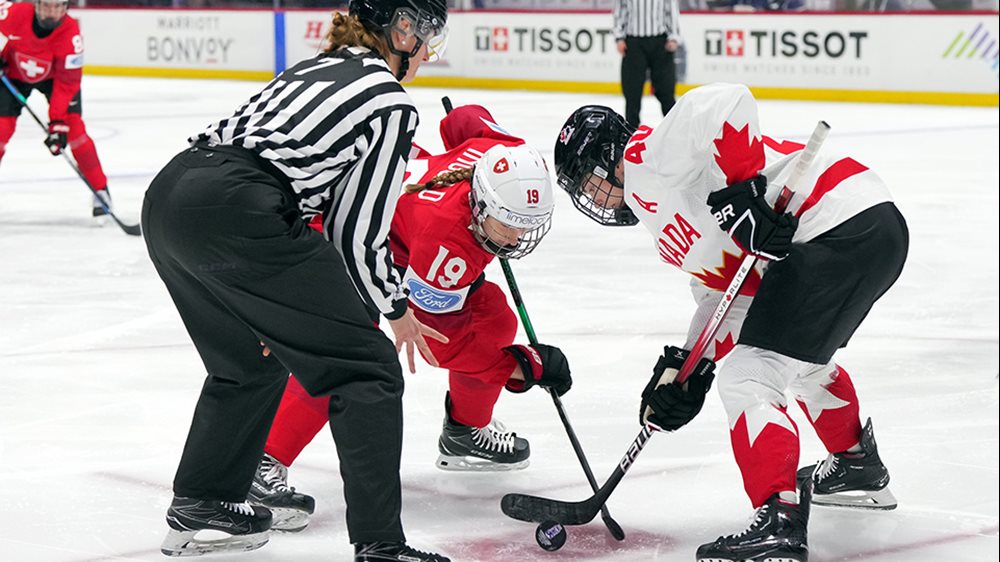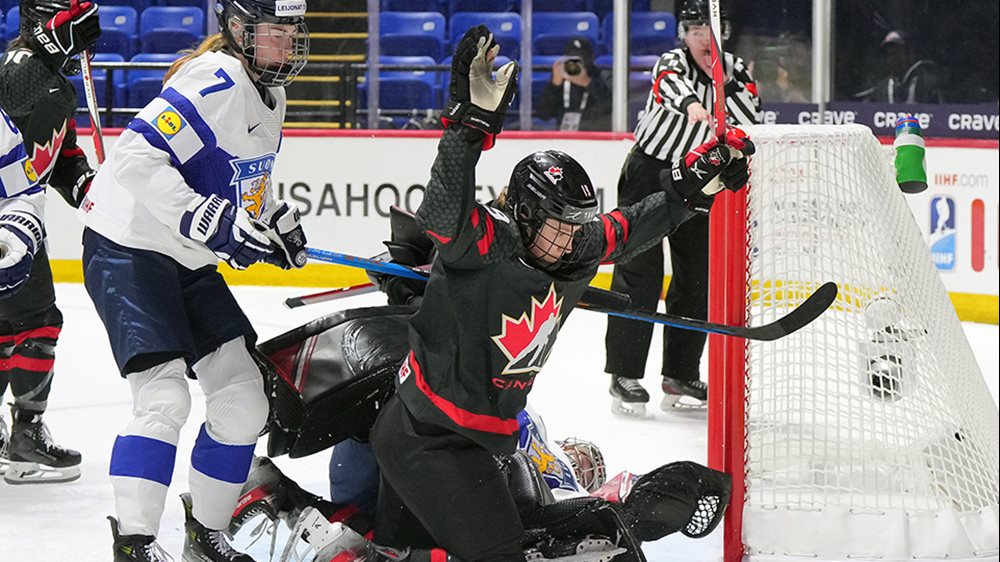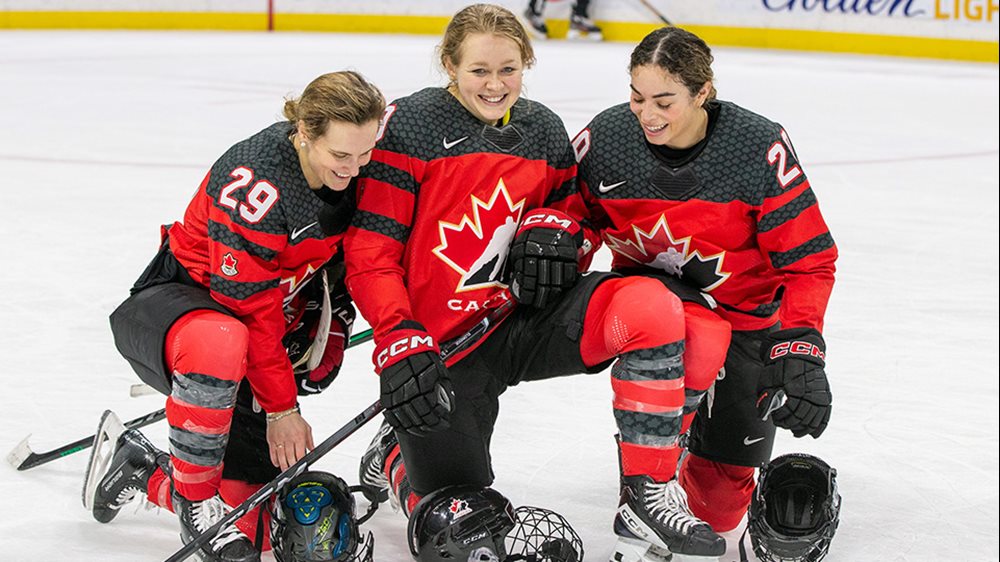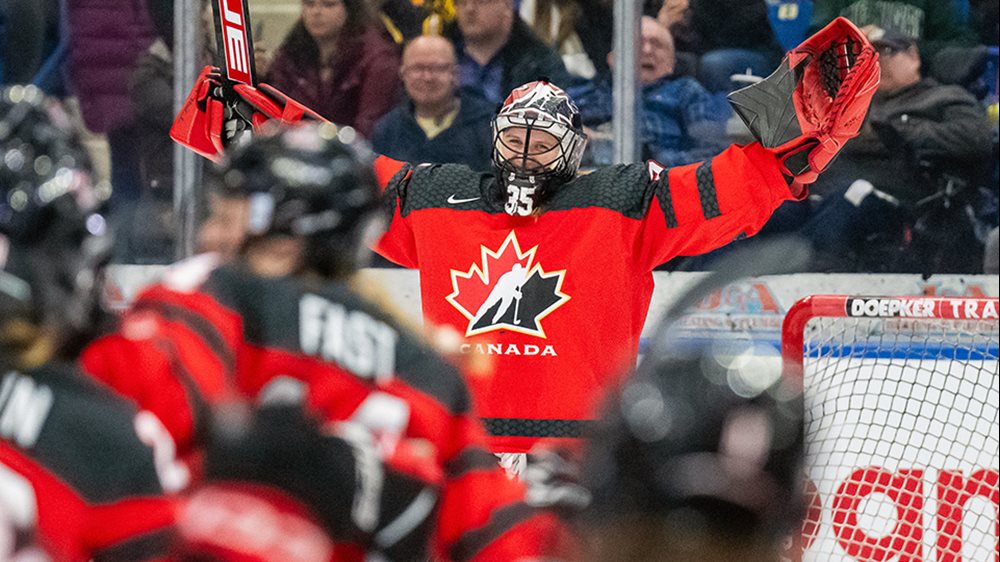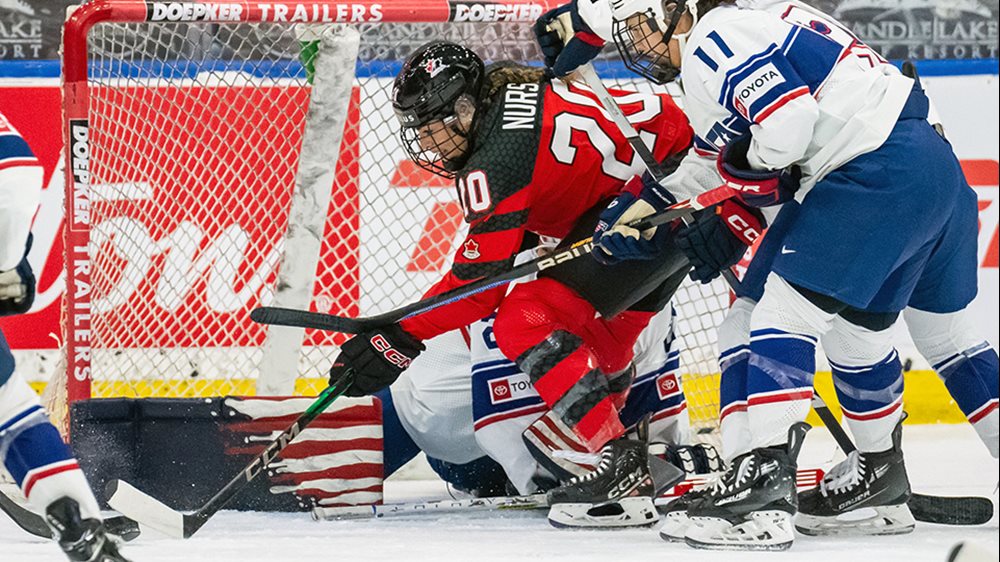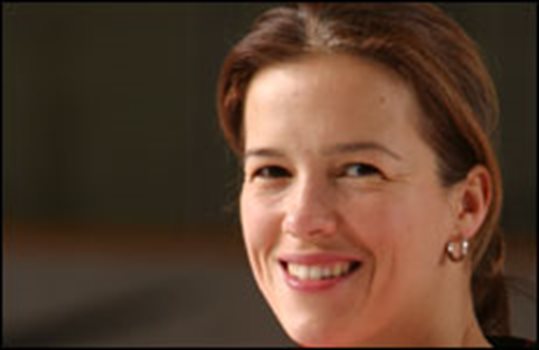
Talking Women's Hockey With Cassie Campbell
When Cassie Campbell announced her retirement from competitive hockey in August 2006, she had clearly established herself as one of the most recognizable faces in Canadian women’s hockey. During a career highlighted by two Olympic and six World Championship gold medals, she captained Canada in 50 international games. Campbell played both forward and defence for the national team en route to 100 career points. The University of Guelph graduate remains in demand as a speaker and hockey media personality. HockeyCanada.ca’s Lucas Aykroyd recently caught up with Campbell, who will provide colour commentary alongside Dave Randorf during TSN’s coverage of the 2007 IIHF World Women’s Championship.
HockeyCanada.ca: How are you enjoying your new role as a broadcaster for TSN and Hockey Night in Canada?
Cassie Campbell: I think it's been really neat as I get into the media side of things. For the first time, other than really Donna Spencer, who writes about the sport for CP, we have women's hockey in the news all the time. It's been good. Doing the coverage on TSN is going to be great. I'll get into all the funny stories about my teammates. I've also had an opportunity to talk to a bunch of the American players, which probably would never have happened when I was playing. This whole Hockey Night in Canada thing, to me that was the most pressure, doing the colour. It wasn't about me as a person. To me it was about showcasing women's hockey, showing that we know what we're talking about. That's the pressure I was facing: 'If you mess up, it looks bad on women's hockey.' It's nice to have someone in the media who's played the women's game. Overall, it helps with publicity for the game.
HockeyCanada.ca: Have you talked shop with Cammi Granato, who’s also been involved in hockey broadcasting? I know you had some thoughts when the Americans cut her before Turin.
Campbell: With Cammi, when she was unfortunately released, it was a terrible decision, but that's another story. I was really the only one who came out and defended her. Her teammates couldn't really say anything because I think they were scared about keeping their positions on the team. I really felt strongly that it was a bad decision. I look up to her a lot, and I knew the Americans were going to miss her. I knew they were going to struggle without her. So I spoke my mind. I got in trouble from a few people about it, but I gave her the highest compliment I could: "We'd have her on our team anytime." We also had some injuries together, and we talked together through that. I'm not going to tell you we're best friends or anything, but we've definitely been in contact over this last year.
HockeyCanada.ca: Looking back at all the World Women’s Championships you played, which ones are particularly special?
Campbell: There are two World Championships that stand out to me. My first one was in 1994, and I'd been cut from the World Championship team in 19. I was only 16 and 18 in those cases, but still, that was tough. So making the team for the first time was special, and having a lot of family and friends come down to Lake Placid and watch me play was too. In 2004, it was ironically my last win. We played in Halifax, and I have a lot of family on the East Coast. My grandmother got to come and watch me for the first time live with the national team jersey. Knowing that one was my first and one was my last, it kind of suits the story.
HockeyCanada.ca: How have the new rules and the obstruction crackdown changed things for defencemen in women’s hockey?
Campbell: It's a lot more based on angling players off to the side, and it's even tougher now because of those rule changes. In women’s hockey, because we don't have hitting, we use our sticks a lot more to check. Because of the new rules, we're restricted in terms of doing that. In talking to a lot of the girls, it's been really tough with 50 penalties a game and that type of thing. You've got to be a great skater. As a defenseman, you've got to be a great skater in the women's game, because it's all about angling and body-to-body position. It's similar to how Nicklas Lidstrom and Scott Niedermayer play. You can't hit. You have to have good skating ability.
HockeyCanada.ca: How do you answer the criticism that international women’s hockey isn’t competitive enough outside of Canada and the USA?
Campbell: First of all, we're in Year 17 of women's hockey internationally, if you take the starting point as 1990. Historically, it took 15 or 20 years for the men's teams to be on a semi-equal scale. Our Canadian team used to beat other countries 72-0 or whatever. The scores were quite a bit more ridiculous than they are for us! I think we're growing up in an era of 24-hour media coverage, so people are more impatient. And there's no question that sometimes as a player, you get a little bit frustrated because you'd rather play tougher games. Still, you have to look at the social issues that the girls face in places like Russia and China as things that are keeping them back. Women in general in those countries aren't supported very well, no matter what it is they do. But if we can just keep plugging away there and helping them any way we can, it'll be good. In 1997, the Russians came over to Kitchener and they had no skates or sticks. In 2001, they won the bronze medal at the World Championships. Things can change, and they can change quickly. But we just need to remember to be patient. It'll take time, and that's the reality of it. Today's male hockey players didn't have to grow up with the same kind of scrutiny.
For more information: |
- <
- >
